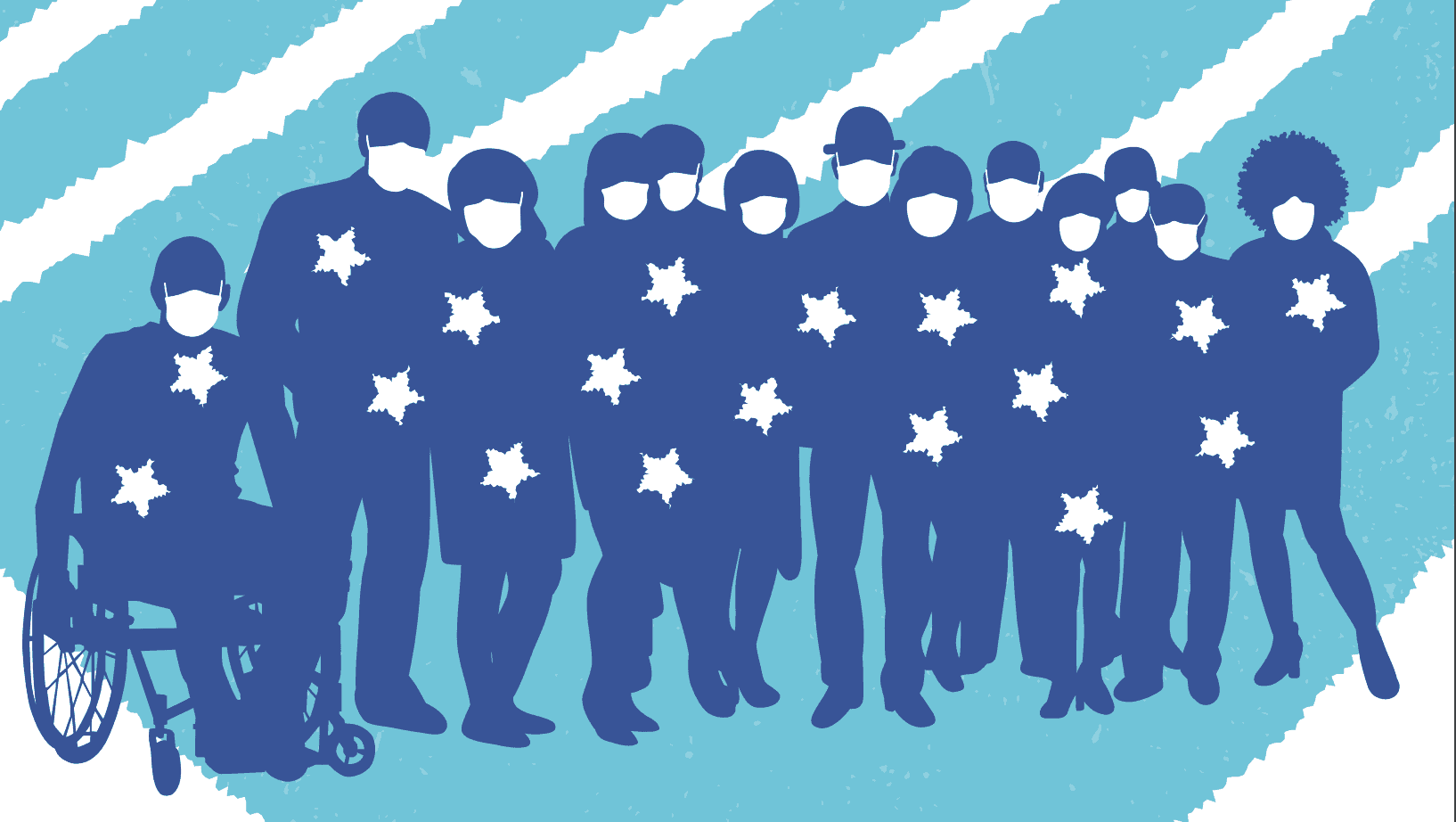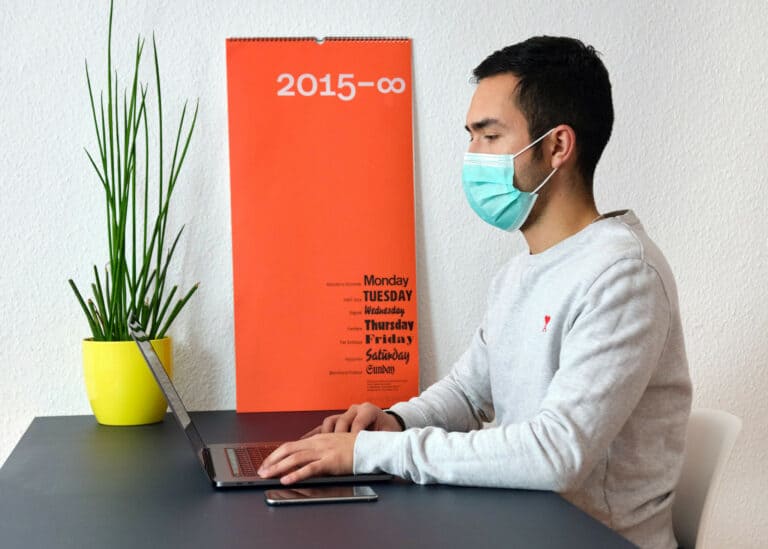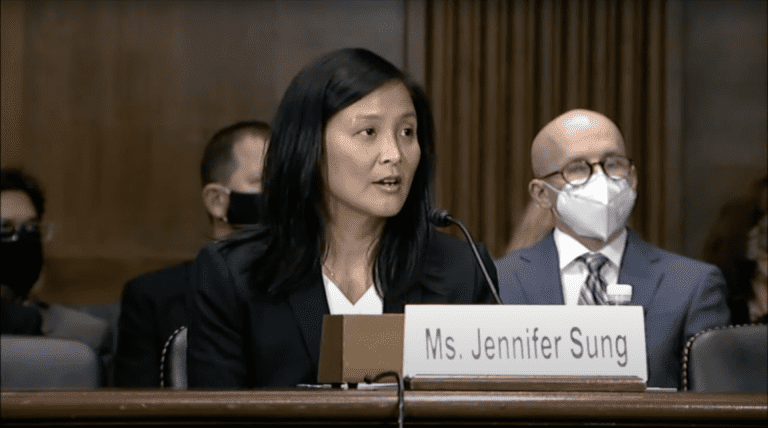
Sharon Block is a Professor of Practice and the Executive Director of the Center for Labor and a Just Economy at Harvard Law School.

Benjamin Sachs is the Kestnbaum Professor of Labor and Industry at Harvard Law School and a leading expert in the field of labor law and labor relations. He is also faculty director of the Center for Labor and a Just Economy. Professor Sachs teaches courses in labor law, employment law, and law and social change, and his writing focuses on union organizing and unions in American politics. Prior to joining the Harvard faculty in 2008, Professor Sachs was the Joseph Goldstein Fellow at Yale Law School. From 2002-2006, he served as Assistant General Counsel of the Service Employees International Union (SEIU) in Washington, D.C. Professor Sachs graduated from Yale Law School in 1998, and served as a judicial law clerk to the Honorable Stephen Reinhardt of the United States Court of Appeals for the Ninth Circuit. His writing has appeared in the Harvard Law Review, the Yale Law Journal, the Columbia Law Review, the New York Times and elsewhere. Professor Sachs received the Yale Law School teaching award in 2007 and in 2013 received the Sacks-Freund Award for Teaching Excellence at Harvard Law School. He can be reached at [email protected].
The COVID-19 pandemic has spurred multiple crises in our country including a public health crisis and an economic one. The need to protect the health of Americans and the need to protect their livelihoods might seem to require disparate approaches. But, as unlikely as it may seem, we believe that rewriting the rules of how workers can act collectively is a key solution to both.
Why? COVID-19 poses particular and grave challenges to working people, and, in the context of the pandemic, threats to workers’ health are a threat to public health. As has become painfully obvious, moreover, the costs of the pandemic are being borne disproportionately by low-wage workers, a population made up primarily of workers of color. As they work to keep the economy moving, these workers are being asked to put their lives on the line in ways that are both unacceptable and unnecessary, especially as the country faces the many facets of our nation’s structural racism.
To stem this tide of workplace transmission we need fundamental changes in the way we approach worker voice and power. Workers need the power to demand new ways to keep themselves and their families safe and to build a more equitable economy than the one the pandemic shut down. How can we change the law to make this possible? We recently issued a report, Worker Power and Voice in the Pandemic Response, that lays out recommendations to answer this question.
First, we must make work safer. But it is clear that we cannot rely on the Trump administration to ensure worker safety and health; after all, this administration’s Occupational Safety and Health Administration (OSHA) is abandoning workers to the ravages of the virus. Accordingly, we recommend several steps to give workers the power to achieve safer workplaces. We recommend creation of committees where workers can sit at the table with their employers to identify the safety and health problems that they confront at work and to demand – free from retaliation – that their employers take the necessary steps to ensure safe and healthy workplaces. Workers themselves know best what threatens their health and how best to ameliorate those threats, but too few employers are even asking for their input.
We also recommend that every workplace have a safety monitor who can provide information and confidential advice to workers about their right to a safe workplace. Providing workers with a reliable and independent source of information about the virus and their rights will enable workers to make informed choices about whether their workplaces are safe and how they can collectively respond when they have unanswered concerns. New polling by Data for Progress shows that the public overwhelming supports both of these policies.
Second, we must adapt the right to organize to fit the new realities of the COVID workplace. Having a union has always been the most reliable route to economic security – something in short supply for workers in the midst of the worst economic downturn since the Depression. In fact, the right to join a union was first codified in the wake of the Depression as a means to stabilize the financial freefall. And research shows that unionized workplaces are safer than other workplaces.
But, the COVID crisis has changed some fundamental features of worker organizing. Because, for example, COVID requires social distancing, it has altered the nature of the American workplace, making in-person communication between workers far more difficult – and dangerous – than it was prior to the pandemic. This means that the process for organizing unions, holding union elections, and engaging in collective activity – terribly difficult before the pandemic – have become essentially impossible under current rules. The result is to constrain worker voice at the exact moment workers, especially workers of color, are straining to be heard. We recommend that all workers have access to a way to meet on-line with coworkers to discuss their common interests without the employer looking over their digital shoulder. Again, a majority of Americans surveyed think this kind of digital meeting space is a good idea. We also recommend increasing the visibility of workers’ collective actions, like strikes and walk outs related to safety, so consumers can make informed judgments about companies and how they spend their money.
Third, we must protect opportunities for good union jobs, which means protecting public employment. COVID threatens to initiate a period of sustained unemployment – the latest predictions from the Fed suggest double digit unemployment for months to come. Today’s unemployment demands a series of bold legislative responses. Those legislative responses must include (1) supporting public sector employment, which has been the source of good union jobs and (2) creating new jobs that provide a similar path to secure employment for the most vulnerable who have lost their jobs in this recession.
The devastation being wrought by COVID requires a fundamental redesign of the law of work. We urgently need legal reforms that empower workers to demand safer workplaces and a more equitable and secure economy than we had before the pandemic.










Daily News & Commentary
Start your day with our roundup of the latest labor developments. See all
April 23
Supreme Court hears cases about 10(j) injunctions and forced arbitration; workers increasingly strike before earning first union contract
April 22
DOL and EEOC beat the buzzer; Striking journalists get big NLRB news
April 21
Historic unionization at Volkswagen's Chattanooga plant; DOL cracks down on child labor; NY passes tax credit for journalists' salaries.
April 19
Alabama and Louisiana advance anti-worker legislation; Mercedes workers in Alabama set election date; VW Chattanooga election concludes today.
April 18
Disneyland performers file petition for unionization and union elections begin at Volkswagen plant in Tennessee.
April 18
In today’s Tech@Work, a regulation-of-algorithms-in-hiring blitz: Mass. AG issues advisory clarifying how state laws apply to AI decisionmaking tools; and British union TUC launches campaign for new law to regulate the use of AI at work.